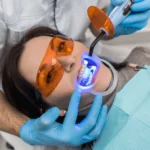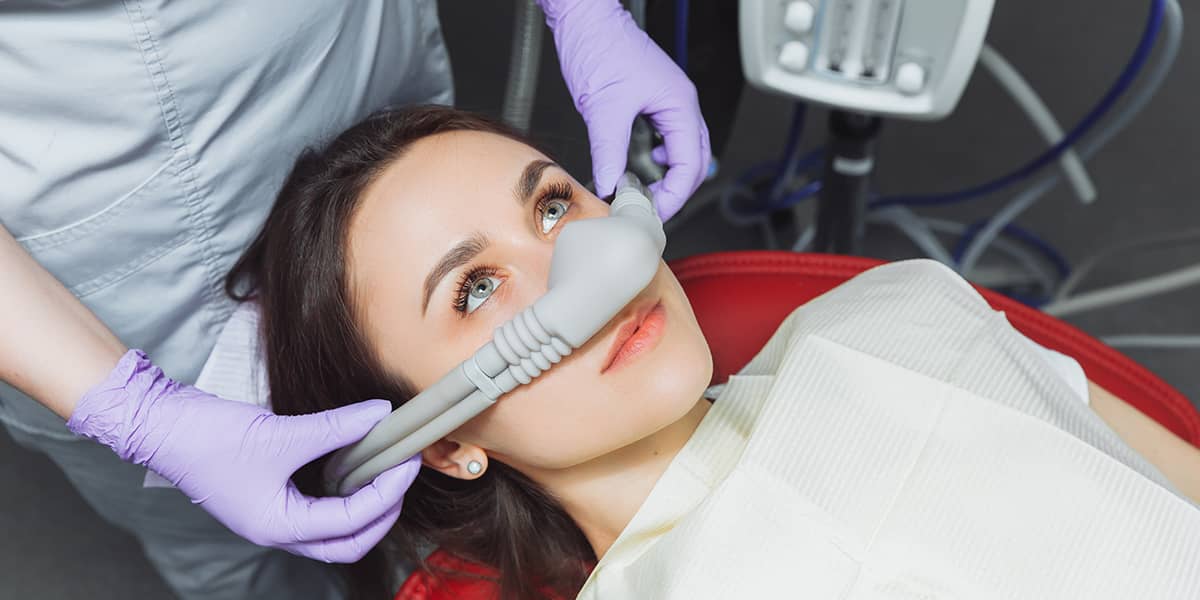Are you filled with anxiety and dread at the mere thought of visiting the dentist? Do those reclining chairs, bright lights, and whirring drills send shivers down your spine? Well, fret no more! Sedation dentistry is here to rescue you from your dental fears and make your experience a truly comfortable one. In this blog post, we will delve into the wonderful world of sedation dentistry – what it is, its benefits, different types of sedation used in dentistry, who can benefit from it, risks to consider, how to find a qualified sedation dentist – everything you need to know to enhance your dental experience! So sit back (pun intended) and let’s explore the wonders of sedation dentistry together.
What is Sedation Dentistry?
What exactly is sedation dentistry? Well, it’s a technique used by dental professionals to help patients relax and feel more at ease during dental procedures. It involves the use of medication that induces a state of relaxation, making the entire experience much more comfortable for individuals who may otherwise be anxious or fearful.
The primary goal of sedation dentistry is to alleviate any feelings of anxiety or distress that patients may associate with dental visits. By administering carefully controlled doses of medication, dentists can create an environment where patients are calm and relaxed throughout their treatment.
One common misconception about sedation dentistry is that it puts you completely under while in reality, most forms simply help you achieve a deep sense of relaxation. The level of sedation can vary depending on the specific needs and preferences of each patient.
It’s important to note that sedation dentistry does not replace local anesthesia (numbing) which is still necessary for pain management during certain procedures. Sedation helps address any emotional or psychological discomfort associated with dental treatments.
Sedation dentistry offers a solution for those who struggle with fear or anxiety surrounding dental visits. With various levels and types available, it can be tailored to meet individual needs, ensuring a stress-free experience at the dentist’s office. So say goodbye to your dental worries and embrace the comfort and relaxation offered by this innovative approach!
The Benefits of Sedation Dentistry
Sedation dentistry offers numerous benefits that can greatly enhance your dental experience. One of the key advantages is increased comfort and relaxation during dental procedures. Many individuals experience anxiety or fear when visiting the dentist, which can make it difficult to receive necessary treatment. With sedation dentistry, you can feel at ease and calm throughout your visit.
Another benefit of sedation dentistry is pain management. Dental procedures often involve some level of discomfort, but sedation helps minimize any pain or discomfort that you may feel during treatment. This allows for a more pleasant and stress-free experience.
Additionally, sedation dentistry enables dentists to perform multiple procedures in one appointment. For those who require extensive dental work or have a busy schedule, this efficiency can be a major advantage.
Furthermore, sedation dentistry is beneficial for individuals with sensitive gag reflexes or difficulty sitting still for long periods of time. Sedatives help relax these issues and ensure a smoother dental procedure.
By choosing sedation dentistry, you can overcome anxiety and fear while improving your overall oral health in a comfortable setting. Don’t let fear hold you back from achieving optimal dental care – consider the many benefits of sedation dentistry for your next visit to the dentist!
Types of Sedation Used in Dentistry
When it comes to sedation dentistry, there are several different types of sedation that can be used to help patients feel calm and relaxed during dental procedures. The type of sedation used will depend on the individual patient’s needs and the complexity of the procedure being performed.
One common type of sedation is nitrous oxide, also known as laughing gas. This is a mild form of sedation that is administered through a mask placed over the nose. Nitrous oxide helps to relax patients without putting them completely asleep, allowing them to remain conscious and able to communicate with their dentist throughout the procedure.
Another option for sedation is oral conscious sedation. This involves taking a prescribed medication before the appointment, which helps to induce a state of relaxation and drowsiness. Patients who choose this method will need someone else to drive them home after their appointment.
For more complex procedures or for patients with severe anxiety, intravenous (IV) sedation may be recommended. This involves administering medications directly into the bloodstream through an IV line. IV sedation allows for deeper levels of relaxation or even complete unconsciousness during treatment.
In addition to these options, some dental practices offer general anesthesia for extremely anxious or medically compromised patients who require extensive dental work. General anesthesia puts patients into a deep sleep throughout the procedure so they are unaware and unable to feel any discomfort.
It’s important for individuals considering sedation dentistry to have a thorough discussion with their dentist about which type would be best suited for their needs and medical history. Each form has its own benefits and considerations that should be taken into account before making a decision.
Candidates for Sedation Dentistry
Are you feeling anxious or fearful about visiting the dentist? If so, you are not alone. Many people experience dental anxiety, which can make even routine check-ups a stressful experience. Thankfully, sedation dentistry offers a solution to help ease your fears and enhance your comfort during dental procedures.
Sedation dentistry is suitable for a wide range of candidates. It is an ideal option for individuals who have:
1. Dental phobia: If the thought of going to the dentist fills you with dread and causes panic attacks, sedation dentistry can provide much-needed relief.
2. Fear of needles: Sedatives can be administered orally in pill form, eliminating the need for injections.
3. Sensitive gag reflex: For those who have difficulty controlling their gag reflex, sedation helps to relax muscles and reduce sensitivity.
4. Low pain threshold: Sedatives can significantly minimize discomfort during dental treatments by numbing pain signals in the brain.
Whether you require a simple cleaning or more complex procedures like wisdom teeth extractions or root canal therapy, sedation dentistry can transform your dental experience into one that is comfortable and stress-free.
Remember that each individual’s needs are unique; therefore, it’s essential to consult with a qualified sedation dentist who will assess your medical history and determine if sedation is suitable for you.
Make your next trip to the dentist a pleasant one by considering sedation dentistry as an option tailored specifically to meet your needs!
Risks and Precautions to Consider
When it comes to sedation dentistry, there are some risks and precautions that you should be aware of. While complications are rare, it is important to discuss your medical history with your dentist beforehand. Certain conditions such as respiratory problems or allergies may increase the risk associated with sedation.
One potential risk of sedation dentistry is an allergic reaction to the medications used. Your dentist will carefully review any known allergies you have before administering any medication. Additionally, there is a small risk of over-sedation or under-sedation, which can be minimized by working with a qualified and experienced sedation dentist.
It’s also important to consider that while most patients tolerate sedation well, there can still be side effects. These may include drowsiness, nausea, or even temporary memory loss after the procedure. However, these effects typically subside quickly.
To ensure your safety during the procedure, it’s crucial that you follow all pre-operative instructions provided by your dentist. This may include fasting for a certain period prior to the appointment or avoiding certain medications that could interact with the sedatives.
While there are risks associated with sedation dentistry like any other medical procedure, they can usually be mitigated by careful planning and communication between you and your dental professional. By discussing any concerns or questions you have before undergoing treatment, you can help ensure a comfortable and safe experience at the dentist’s office without anxiety or fear!
Finding a Qualified Sedation Dentist
When it comes to finding a qualified sedation dentist, there are a few key factors to consider. First and foremost, you want to make sure that the dentist has received proper training in sedation techniques. Look for dentists who have completed additional education or certification specific to sedation dentistry.
Another important aspect is experience. A dentist who has performed numerous successful sedation procedures will likely be more skilled at managing any potential complications or side effects that may arise during treatment.
It’s also crucial to find out what type of sedation options the dentist offers. Different patients may have different preferences or requirements when it comes to sedation methods, so having a range of options available can be beneficial.
In addition, it’s worth considering the overall atmosphere and environment of the dental practice. A calm and relaxing setting can help further enhance your comfort during the procedure.
Don’t hesitate to ask for recommendations from friends, family, or even other healthcare professionals. Hearing about positive experiences firsthand can give you confidence in choosing a qualified sedation dentist.
By taking these factors into account and doing thorough research, you can find a qualified sedation dentist who will ensure your comfort and relaxation throughout your dental treatment journey.
Conclusion: Improving Your Dental Experience with Sedation Dentistry
When it comes to dental care, comfort and relaxation are paramount. For those who experience anxiety or fear at the thought of visiting the dentist, sedation dentistry provides a solution that can transform their dental experience. By utilizing various forms of sedation, patients can receive the necessary treatments they need while feeling calm and relaxed.
Sedation dentistry offers a range of benefits that make it an attractive option for many individuals. Not only does it alleviate anxiety and fear, but it also enables patients to undergo longer procedures without discomfort or stress. Additionally, sedation allows dentists to work more efficiently as patients remain still and cooperative throughout the treatment process.
There are different types of sedation used in dentistry depending on the patient’s needs and preferences. Nitrous oxide (commonly known as laughing gas) is frequently administered for mild cases of dental anxiety. Oral sedatives provide a deeper level of relaxation, making them suitable for moderate levels of anxiety. For extreme cases or complex procedures, intravenous (IV) sedation may be recommended.
While sedation dentistry offers numerous advantages, it is important to consider certain risks and precautions associated with these techniques. Patients should disclose their complete medical history to their dentist before undergoing any form of sedation. It is crucial to follow all pre-appointment instructions provided by your dentist regarding fasting guidelines and transportation arrangements after treatment.
Finding a qualified sedation dentist is essential in ensuring a safe and effective procedure. Look for professionals who have received proper training in administering different forms of sedatives and have extensive experience in providing dental care under these circumstances. Don’t hesitate to ask about their certifications or inquire how often they utilize sedation techniques in their practice.












